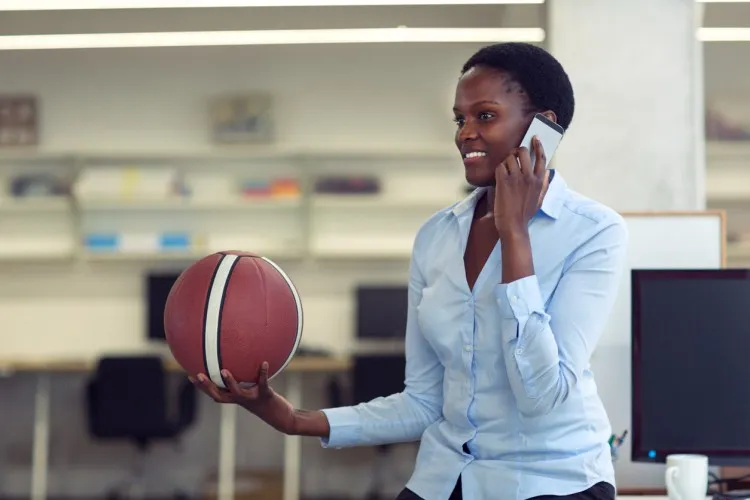I. Introduction

Choosing a sports management major can open up a wide array of exciting career opportunities in the sports industry. It is important to understand the role and responsibilities that come with pursuing this major. In this article, we will explore the field of sports management, its definition, and the significance of comprehending the role and responsibilities associated with a sports management major.
II. Overview of Sports Management as a Major
A. Definition of sports management
Sports management involves the organization, administration, and marketing aspects of the sports industry. It encompasses various areas, such as event management, marketing and promotions, and sports facility operations. Sports management professionals work behind the scenes to ensure the smooth functioning and success of sports organizations and events.
B. Core subjects and coursework in sports management programs
Sports management programs typically include a combination of theoretical and practical coursework. Core subjects often cover areas such as sports marketing, event planning, sports law and ethics, financial management, and sports sociology. Students also have the opportunity to gain hands-on experience through internships, practical projects, and case studies.
C. Skill sets developed through the major
A sports management major equips students with a range of valuable skills. These include leadership and management abilities, communication and interpersonal skills, problem-solving and decision-making, and a deep understanding of the sports industry. Students also develop skills specific to their chosen area of focus, such as marketing, event management, or sports administration.
III. Career Paths in Sports Management
A. Sports marketing and promotions
- Responsibilities and tasks in sports marketing Sports marketing professionals focus on creating strategies to promote sports organizations, events, and products. They develop marketing campaigns, implement sponsorship deals, manage social media presence, and analyze consumer behavior to increase fan engagement and revenue.
- Roles in promotional campaigns and sponsorships Sports marketing professionals collaborate with sponsors to develop and execute promotional campaigns. They negotiate and secure sponsorships, create brand activation plans, and ensure that sponsorships align with the organization’s values and objectives.
B. Sports event management

- Planning and organization of sporting events Sports event managers are responsible for organizing and coordinating sports events, from grassroots tournaments to major international competitions. They handle logistics, secure venues, manage budgets, oversee volunteer recruitment, and ensure the smooth execution of the event.
- Venue management and logistics Sports event managers are involved in coordinating various aspects of venue management, including contracts, scheduling, staffing, and ensuring that facilities meet the requirements of participants, spectators, and stakeholders.
C. Sports administration and operations
- Management of sports organizations and facilities Sports administrators oversee the management and operations of sports organizations, such as professional teams, sporting goods companies, or collegiate athletics departments. They handle personnel management, budgeting, strategic planning, and implementation of policies and procedures.
- Administrative tasks and operational responsibilities Sports administrators perform a range of administrative tasks, including organizing meetings, coordinating travel arrangements, processing financial transactions, managing contracts, and maintaining key relationships within the sports industry.
IV. Job Opportunities and Industries in Sports Management
A. Professional sports organizations and teams

A career in sports management can lead to various job opportunities within professional sports organizations and teams. Some positions include:
- Sports team manager: Responsible for overseeing the day-to-day operations of a sports team. This includes managing budgets, coordinating travel arrangements, and handling logistics for games and events.
- Athletic director: Manages the entire athletic department within a professional sports organization. They oversee coaching staff, athlete recruitment, facility management, and budgeting.
- Player agent: Represents and negotiates contracts for professional athletes. They ensure that their clients receive fair compensation and handle endorsement deals and sponsorships.
B. Collegiate athletics departments
Collegiate athletics departments offer career paths for sports management graduates. Opportunities within this sector include:
- Athletic administrator: Responsible for managing the athletic program of a college or university. This includes overseeing compliance with regulations, coordinating event schedules, and handling budgeting and fundraising.
- Compliance officer: Ensures that the athletic department complies with NCAA or other governing bodies’ rules and regulations. They monitor the eligibility of student-athletes, handle recruiting compliance, and investigate any potential violations.
- Academic advisor: Works closely with student-athletes to develop academic plans, monitor their academic progress, and ensure they meet eligibility requirements.
C. Sports marketing agencies
Sports marketing agencies provide a range of services related to marketing and promotions within the sports industry. Possible career options include:
- Sports marketing coordinator: Assists in planning and implementing marketing strategies for sports events, teams, or athletes. They may be responsible for coordinating advertising, branding, social media campaigns, and sponsorships.
- Sponsorship sales manager: Develops relationships with potential sponsors and secures financial support for sports events or organizations. They negotiate contracts and oversee the fulfillment of sponsorship agreements.
D. Sporting goods companies
Sporting goods companies offer job opportunities in various areas such as sales, marketing, product development, and brand management. Examples of potential roles include:
- Product manager: Manages the development and lifecycle of sports products, including market research, product design, pricing, and distribution.
- Brand manager: Oversees the marketing and positioning of a company’s sports brand. They develop brand strategies, create marketing campaigns, and work closely with advertising agencies.
E. Event management companies
Sports management graduates can work in event management companies, specializing in sports event planning and organization. Possible positions include:
- Event coordinator: Manages various aspects of sports events, including logistics, scheduling, vendor coordination, and participant registration.
- Venue manager: Handles the operations and logistics of sports venues. This includes overseeing maintenance, security, and ensuring a smooth experience for both participants and spectators.
V. Skills and Qualities of a Sports Management Professional

A. Strong communication and interpersonal skills
Effective communication is vital in sports management, as professionals need to collaborate with athletes, coaches, sponsors, and other stakeholders. Clear and concise communication helps convey ideas, negotiate contracts, and build strong relationships within the industry.
B. Leadership and management abilities
Sports management professionals often hold leadership positions, requiring them to lead teams, make strategic decisions, and manage resources effectively. Strong leadership and management skills enable professionals to navigate complex situations and inspire others towards a common goal.
C. Knowledge of sports industry trends and regulations
Staying updated with current trends and regulations within the sports industry is essential for sports management professionals. They need to be aware of industry innovations, changing marketing strategies, and legal aspects such as athlete contracts and compliance requirements.
D. Problem-solving and decision-making skills
The sports industry presents its fair share of challenges and uncertainties. Sports management professionals must possess strong problem-solving and decision-making skills to address issues swiftly and effectively. They need to analyze situations, propose solutions, and make informed decisions that benefit their organizations or clients.
Conclusion
A degree in sports management opens up a wide range of job opportunities in various industries within the sports world. Professionals can work with professional sports organizations, collegiate athletics departments, sports marketing agencies, sporting goods companies, or event management companies. Developing important skills such as strong communication, leadership, industry knowledge, problem-solving, and decision-making abilities is essential for success in the sports management field. Engaging in internships and building industry connections further enhances career prospects and professional growth. By understanding the job opportunities and cultivating the necessary skills, aspiring sports management professionals can embark on fulfilling and impactful careers in the sports industry.



